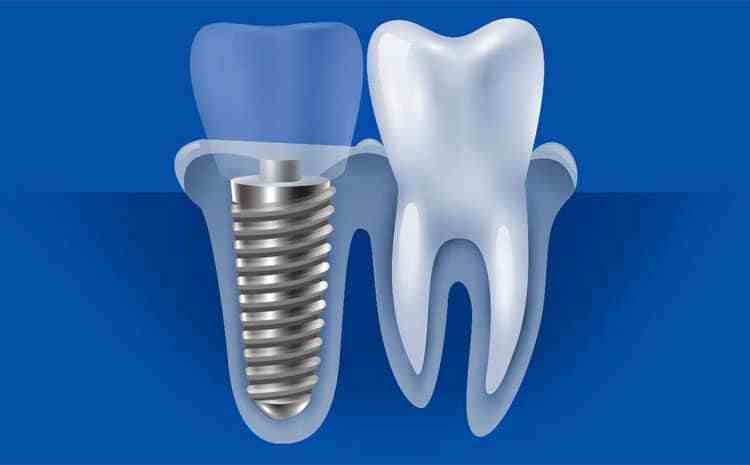Dental implants have revolutionized modern dentistry, offering a reliable solution for replacing missing teeth. Among the materials used for dental implants, titanium stands out as a preferred choice due to its biocompatibility, durability, and ability to fuse with bone. However, concerns about the safety of titanium implants occasionally arise, prompting discussions and research to assess their overall safety and effectiveness.
Understanding Titanium Dental Implants
Titanium dental implants are metal posts surgically positioned into the jawbone beneath the gums. They serve as a stable support for artificial teeth, such as crowns, bridges, or dentures. The process of osseointegration, where the implant fuses with the surrounding bone tissue, ensures stability and functionality similar to natural teeth.
SEE ALSO: What Are The Complications of Dental Implants?
Biocompatibility of Titanium
One of the primary reasons titanium is favored in dentistry is its excellent biocompatibility. Biocompatibility refers to the ability of a material to integrate well with biological systems without causing adverse reactions. Titanium has a unique property of forming a thin oxide layer on its surface when exposed to oxygen, which enhances its biocompatibility and corrosion resistance.
Safety Considerations And Research Findings
Allergic Reactions
Concerns about allergic reactions to titanium dental implants occasionally surface, although they are rare. True allergies to titanium are extremely uncommon because titanium is generally considered inert and does not trigger immune responses in the body’s tissues.
However, some patients may experience hypersensitivity reactions, often attributed to other components in the implant rather than titanium itself.
Research studies investigating titanium allergies have generally concluded that titanium is well-tolerated by the vast majority of patients. A systematic review published in the Journal of Oral Implantology in 2016 analyzed existing literature and found no conclusive evidence linking titanium implants to systemic health problems or allergies in patients.
Long-term Stability And Success Rates
Titanium dental implants boast high success rates, with studies indicating success rates of over 95% in the long term. The key to their success lies in osseointegration, where the bone grows around the implant, anchoring it securely in place.
Factors such as proper implant placement, patient oral hygiene, and overall health contribute significantly to the long-term stability and success of titanium implants.
Longitudinal studies tracking patients with titanium implants for extended periods have consistently demonstrated their durability and reliability. These implants can withstand chewing forces and maintain their structural integrity over many years, making them a preferred choice for both patients and dental professionals.
Corrosion And Biodegradation
While titanium is highly corrosion-resistant, concerns about potential biodegradation or release of metal ions into the body have been raised. Research has shown that titanium implants exhibit minimal corrosion under normal physiological conditions. The protective oxide layer that forms on the titanium surface prevents significant degradation over time.
Studies assessing the release of titanium ions into surrounding tissues have generally found low levels that do not pose health risks. The body’s immune response and natural processes effectively manage any minimal ion release without causing systemic effects.
Patient Considerations And Precautions
Pre-implant Assessment
Before recommending titanium dental implants, dentists conduct a thorough assessment of the patient’s medical history, allergies, and oral health status. This evaluation helps identify any potential risk factors or contraindications that could affect the success of the implant treatment.
Patients are typically screened for allergies and sensitivities to metals during the pre-implant assessment phase. Although titanium allergies are rare, patients who have known sensitivities or who have experienced reactions to metal components in the past may require alternative materials or additional precautions.
Follow-up Care and Maintenance
After implant placement, diligent oral hygiene practices are crucial for maintaining the health and longevity of titanium dental implants. Patients should adhere to regular dental check-ups and follow specific care instructions provided by their dentist or oral surgeon. Routine professional cleanings and examinations help monitor the implants and detect any issues early on.
Conclusion
Titanium dental implants continue to be a safe and effective treatment option for replacing missing teeth, supported by extensive research and clinical experience. Their biocompatibility, durability, and high success rates make them a preferred choice among dental professionals and patients alike. While concerns about allergies and corrosion exist, current evidence suggests that these risks are minimal and manageable with proper patient screening and care protocols.
As research and technology in dental implantology advance, ongoing studies will continue to explore new materials and techniques to further enhance the safety and longevity of dental implants. For now, titanium remains a reliable cornerstone in modern dentistry, offering patients restored function and aesthetics with confidence.
In conclusion, patients considering dental implants should consult with their dentist or oral surgeon to discuss the benefits, risks, and suitability of titanium implants based on their individual needs and oral health status.

